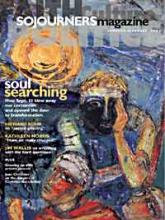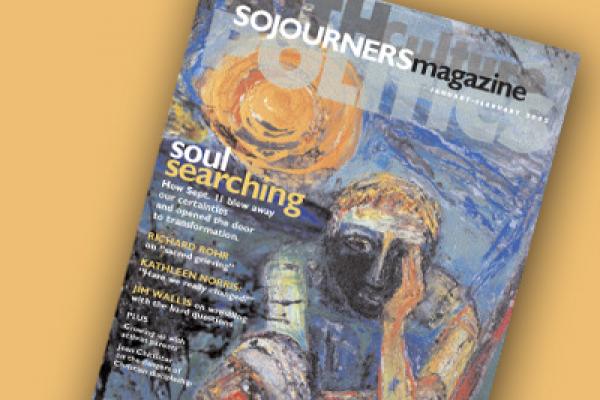It is tempting to believe that Americans were truly changed after the horror of Sept. 11, that we are now less likely to lose ourselves in the contemplation of either Jennifer Lopez's navel or our own. It is tempting to believe that the deaths of so many ordinary people—workers, parents, business travelers, couples returning from family reunions and weddings—has led us to take the words of Psalm 90 to heart: "Lord, make us know the shortness of our life, that we may gain wisdom of heart." But only time will tell.
For a few days, shock and grief made us people under a spell. The relentless noise and clutter of advertising was silenced, and when we turned on our televisions we saw unaccustomed images of people at prayer. Amazingly, we were more likely to hear the words of the prophet Jeremiah than those of the latest teen idol. Our celebrity culture all but vanished in the light of apocalypse, a word that comes from the Greek for "uncovering" or "revealing." In my book Amazing Grace: A Vocabulary of Faith, I said of apocalypse, "we human beings learn best how to love when we're a bit broken, when our plans fall apart, when our myths of self-sufficiency and safety are shattered. Apocalypse is meant to bring us to our senses, allowing us a sober if painful glimpse of what is possible in the new life we build from the ashes of the old."
Read the Full Article

